

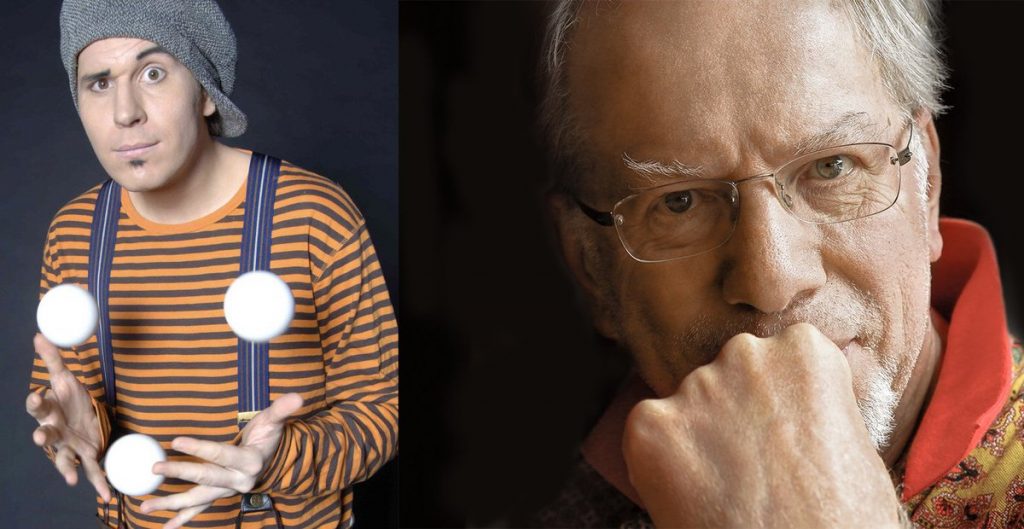
…a few Kremerata Baltica members…
Kristers Mārtiņš Šīmanis
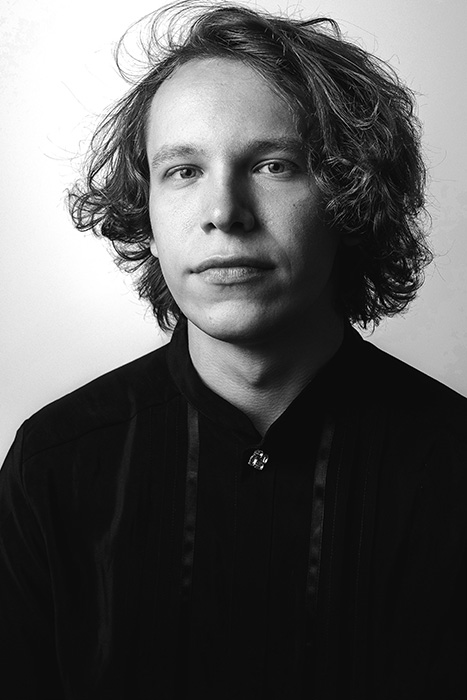
Kristers Mārtiņš Šīmanis was born in Latvia. He started his studies at the age of 5 and currently is working on his Bachelor in Riga, Jazeps Vitols Music Academy with Diana Ozoliņa. Kristers has participated in many competitions and masterclasses with musicians like Wolfgang Emanuel Schmidt, Franz Helmerson. He has played with chamber orchestra “Sinfonietta Riga”, Latvian National Symphony Orchestra and other orchestras around Europe. Kristers has also participated in many chamber music competitions and festivals around Europe.
Kristers is a member of Kremerata Baltica since January 2019.
Rūta Balčiūtė
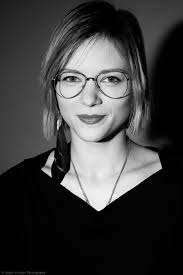
Rūta Balčiūtė studied piano and cello at the Alytus Music School, Lithuania (2000-2007), then she continued to study cello with Valentinas Kaplūnas at the Juozas – Tallat Kelpša Conservatory in Vilnius (2007- 2011). She graduated with a Master’s degree from the Lithuanian Academy of Music and Theatre where she was studying with prof. Rimantas Armonas (2011-2017).
Rūta Balčiūtė is a laureate of several competitions in Lithuania. She participated a lot in orchestra projects: Norden Orchestra, Animato Philharmonic Symphony Orchestra, Baltic Sea Philharmonic Orchestra. She has working experience in National Lithuanian Philharmonic symphony orchestra. Also R. Balčiūtė participated in Masterclasses by professors: Oystein Birkeland (Norway), Mindaugas Bačkus (Lithuania), Niels Ullner (Denmark), Nicholas Jones (UK), Denis Severin (Switzerland), Urzul Marciniec- Mazur (Poland), Mats Lidström (UK).
Rūta Balčiūtė is a member of Kremerata Baltica since 2019.
Kristaps Pētersons
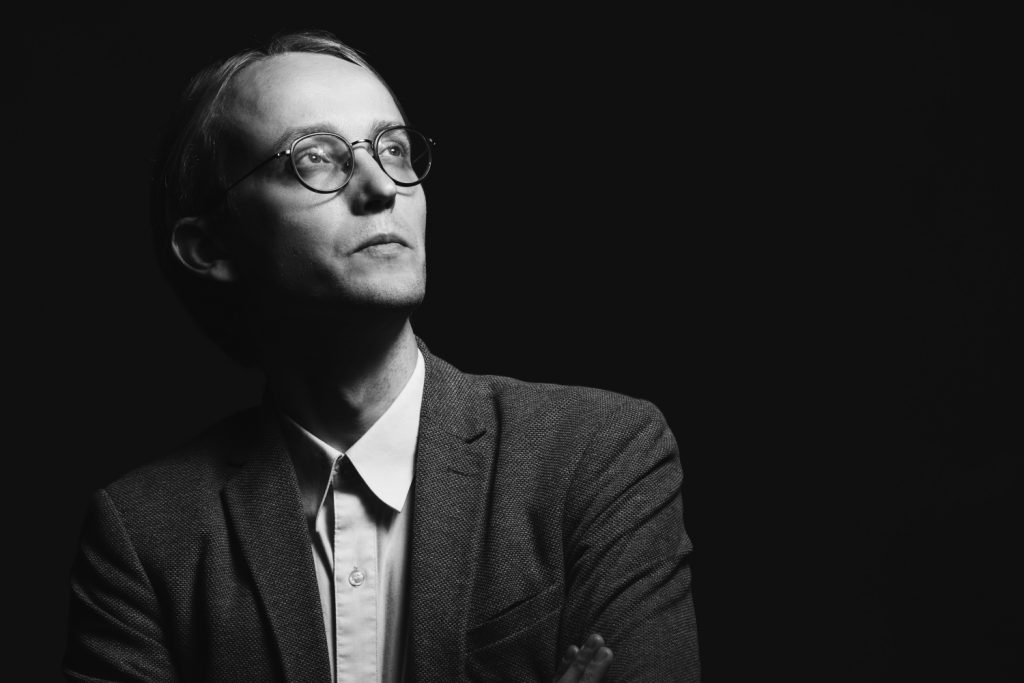
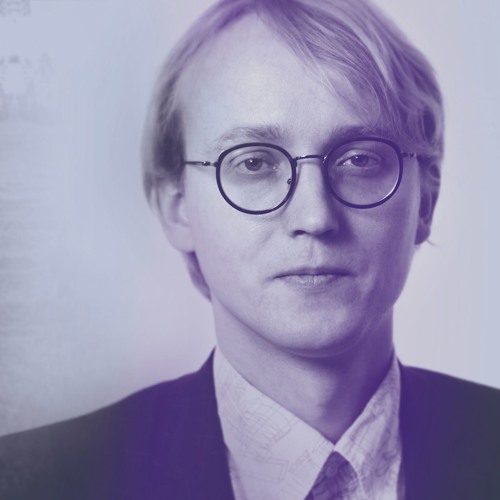
Double bassist
Kristaps Pētersons received his baccalaureate in double-bass and master’s degree in composition from the Jāzeps Vītols Latvian Academy of Music. In 2010 he was awarded first place in the young composers’ category at the International Rostrum for Composers Competition (organized by UNESCO) for the composition Twilight Chants. Together with writer Sergey Timofeyev and director Viesturs Meikšāns, he created the opera Mihails un Mihails spēlē šahu (Mikhail and Mikhail are Playing Chess), which received Latvia’s Great Music Award in the category Production of the Year(2014). In 2017 together with the artists Anna Salmane and Krišs Salmanis, he was the recipient of Latvia’s most prestigious award for the visual arts, the Purvītis Prize for the work Dziesma (Song).
Kristaps is a member of Kremerata Baltica since 2015.
Iurii Gavryliuk
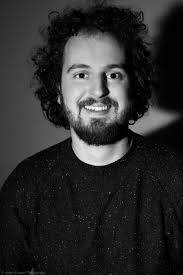
Double bassist
Born in Ukraine, Iurii Gavryliuk began studying the double bass with Professor Olga Boichuk in Rivne, Ukraine. In 2011 he received a full scholarship to continue his education at the Guildhall School of Music and Drama in London with Rinat Ibragimov and Luis Cabrera. He has received first prize in the Eugene Coca competition in Kishinev, Moldova and the third prize in the Bass 2014 competition in Amsterdam, the Netherlands.
Iurii has worked with the London Symphony Orchestra, Netherlands Philharmonic Orchestra, the Orchestra of the Age of Enlightenment among others. In 2016 he took part in the festival Chamber Music Connects the World in Kronberg, Germany
In January 2015, Iurii became a member of Kremerata Baltica chamber orchestra.
Giedrė Dirvanauskaitė
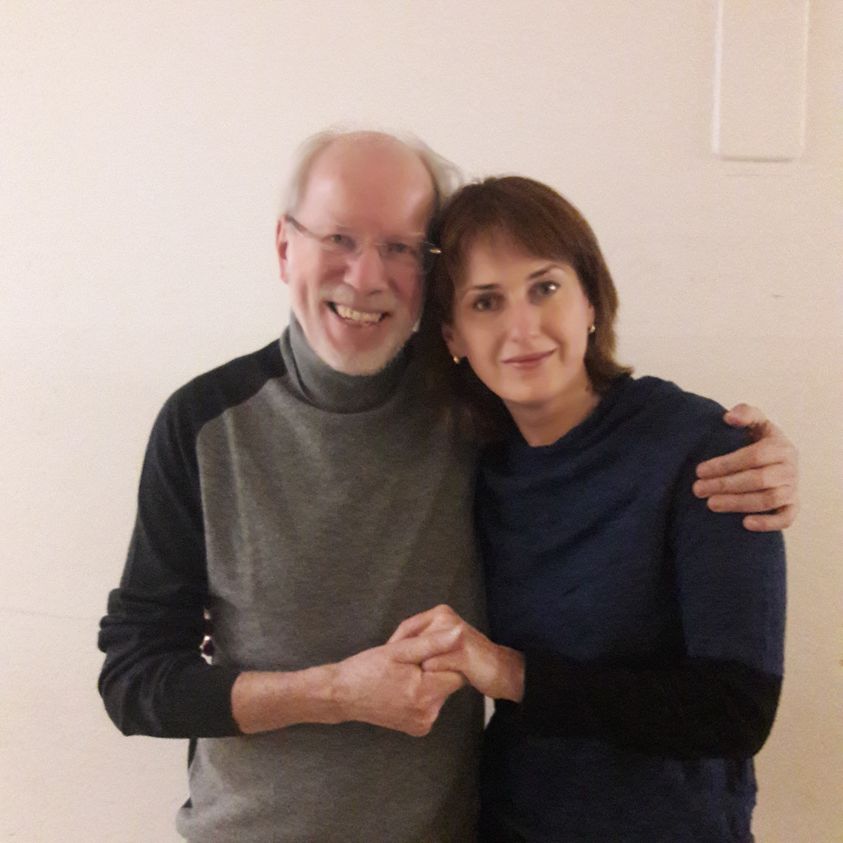
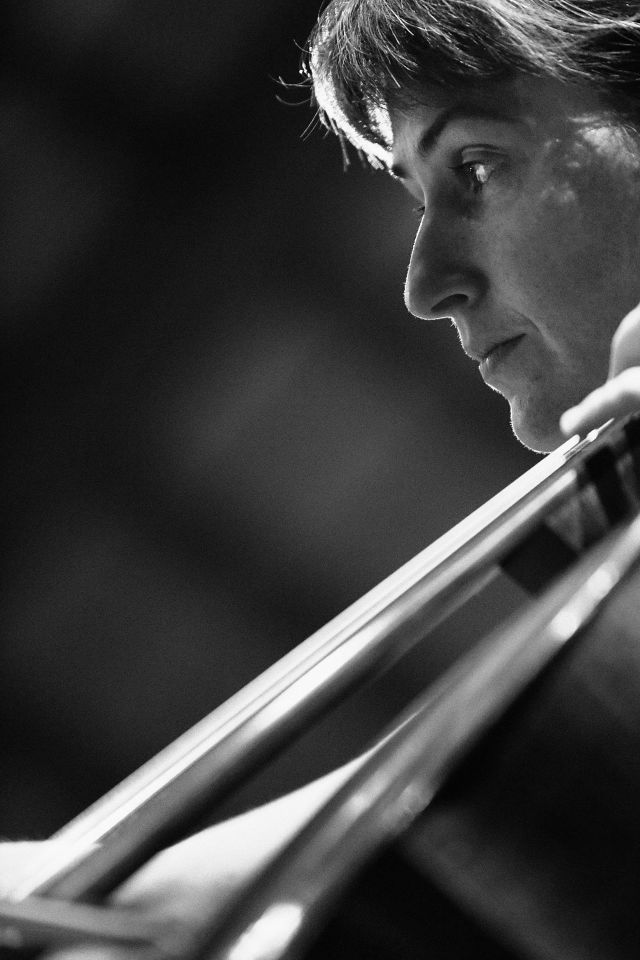
Cellist
Giedrė Dirvanauskaitė is a Lithuanian cellist. She is a laureate of several national competitions; attended master classes held by M. Rostropovich, D. Geringas, H. Beyerle, T. Grindenko, and others.
As a soloist G. Dirvanauskaitė has performed with many different chamber and symphony orchestras of Europe, Asia, and the Middle East. Giedre Dirvanauskaite has premiered works of V. Kissine, G. Kancheli, A. Maskats, V. Poleva. She has attended many festivals like Lockenhaus (Austria), Gstaad, Basel (Switzerland), Beppu (Japan), Gohrisch (Germany), December Nights (Russia), and others. Her stage partners include artists like V. Afanassiev, M. Argerich, Y. Bashmet, M. Bekavac, S. Chen, V. Mendelssohn, L. Hagen, H. Holliger, M. Portal, A. Zlabys.
In recent years Giedrė Dirvanauskaitė has extensively toured with many different chamber music formations. Since 2009, she regularly performs and tours in a trio with violinist Gidon Kremer and pianist Khatia Buniatishvili. The latter trio’s released record “Kissine/Tchaikovsky: Piano trios” (ECM, 2011) won the prestigious German Critics Award as a recording of exceptional artistry, in addition to receiving praise from all over the world as one of the best recordings of P. Tchaikovsky’s works ever made. Other recordings with G. Dirvanauskaitė’s solo part include “Hymns and Prayers” – Silent Prayer by G. Kancheli (ECM, 2008), “Between the Waves” – Duo by V. Kissine (ECM, 2013) and 2 CD album released by the label ECM – a homage to a composer Mieczyslaw Weinberg – including his 10 Symphony for strings and String trio for which G. Dirvanauskaitė was nominated for the Gammy award 2015.
In January 2015 Giedrė Dirvanauskaitė toured together with Gidon Kremer and pianist Daniil Trifonov as a trio through USA. She remains to be the leader of violoncello group of the Kremerata Baltica chamber orchestra that she is a member since 1997. Dirvanauskaitė plays an instrument by Alexander Gaglianus, made in 1709.
Konstantins Paturskis

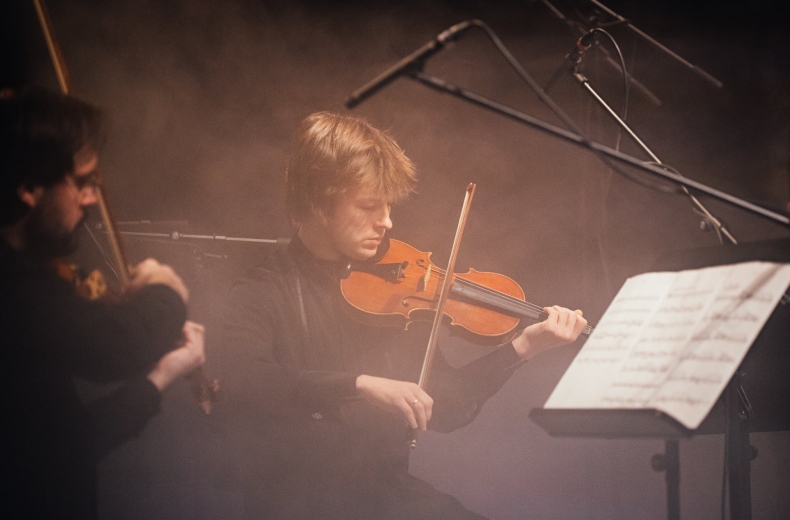
Violinist
Konstantins Paturskis started studying violin at the age of 6 in Jazeps Medins Music School with Dagmara Kezbere, with whom later he continued his studies in Music College of Jelgava. He received his bachelor degree in Jazeps Vitols Latvian Music Academy with professor Juris Svolkovskis. While studying on the bachelor program, Paturskis enrolled in ERASMUS studies in Conservatorio Giuseppe Verdi in Milan with professor Christian Anzinger. In summer 2016 Konstantins finished his studies in Conservatory of Lausanne with professor Gunars Larsens, receiving master of arts diploma in violin playing. Currently Konstantins is obtaining master of arts degree in chamber music in Jazeps Vitols Latvian Music Academy in the class of Gunta Rasa and Gunars Larsens.
Konstantins gave his first public performance at the age of 7. He has won his first competition at the age of 10 (Talants Latvijai, Riga, 1999) and first time became a laureate of an international competition at the age of 15 (Muzikos Tiltai, 2004, Lithuania).
He has participated as a soloist and leader with different orchestras, such as Jelgava Chamber Orchestra, Jazeps Vitols Music Academy Chamber Orchestra, Jazeps Vitols Music Academy Symphony Orchestra, Lausanne Concervatory Orchestra, Lausanne University Chamber Orchestra. https://www.kremeratabaltica.com/portfolio-item/8418/
Dainius Peseckas

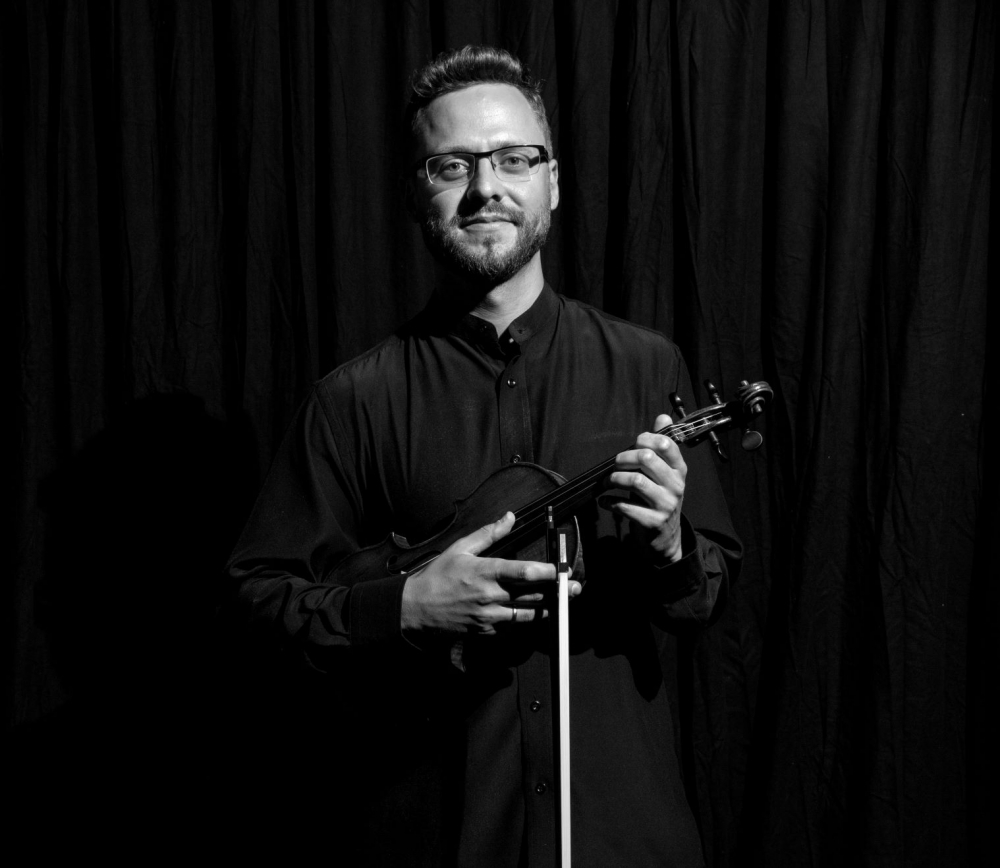
Violinist
Dainius Peseckas was born in Vilnius, Lithuania. In 2008 he graduated from the Lithuanian Academy of Music with a Master’s Degree. In year 2003 the violinist studied at Brussels Royal Conservatory. During his studies Dainius took part in number of masterclasses in Lithuania, Finland, Denmark and Germany.
Beside Kremerata Baltica, much of Dainius’ concert activity is centered around chamber music. He has performed with various ensembles in Lithuania, Latvia, Austria, Germany, Russia, Belgium, Finland, Spain and other countries. As a soloist D. Peseckas has played with the Lithuanian National Symphony Orchestra, Modestas Pitrenas conducting, and with the chamber orchestra Kremerata Baltica.
In 2004 D. Peseckas won the Grand Prix at the 14th Young Musicians International Competition in Barletta, Italy. In 2006 Dainius took part in the „Chamber Music Connects the World“ festival organized by Kronberg Academy.
ABOUT KREMERATA BALTICA
Twenty years ago Gidon Kremer created the ideal conditions for a musical revolution. The internationally acclaimed violinist unveiled his compelling new initiative at Austria’s Lockenhaus Festival in the summer of 1997, giving life to what was destined soon to become one of the world’s finest chamber orchestras. Kremerata Baltica – comprising twenty-three outstanding young musicians from Latvia, Lithuania and Estonia – captivated its first audience with playing of unrestrained joy and exuberance and with the variety and vitality of its programming. Those qualities remain essential to its identity as the ensemble enters its 20th anniversary season.
Kremerata Baltica was conceived as Gidon Kremer’s 50th birthday present to himself. The new orchestra, which immediately embodied its founder’s tireless energy and visionary artistry, arose from the Latvian artist’s determination to share the fruits of his rich experience as a soloist and chamber musician with young colleagues from the Baltic States and to enhance the region’s cultural life. The learning process allowed no room for artistic compromise; in fact, the ensemble’s ethos has been ruled from the beginning by ideals of artistic excellence and adventure. Its outlook has also drawn on an innovative approach to programming, one open to artistic experiment, creative daring and bold challenges to convention.
When interviewed by the New York Times in 1999, Gidon Kremer described Kremerata Baltica as a musical democracy: “open-minded, self-critical, a continuation of my musical spirit”. Its performances, he continued, should always deliver “a sense of spontaneous music-making that makes a concert dramatic and sensuous, a continuation of the creative process”. His high aspirations for the ensemble have been realized with striking consistency ever since.
The headline events in Kremerata Baltica’s history and the achievements of its members, past and present, contain ample material for a book-length study. Since the turn of the 21st century, the orchestra has performed in over 50 countries, appeared in more than 600 cities and given over 1,000 concerts. It has secured lasting support from the governments of its three home nations. In addition, it has created a discography of over two dozen albums, including the 2002 ECHO Klassik and Grammy Award-winning After Mozart on Nonesuch Records and other critically acclaimed titles on the Deutsche Grammophon and ECM labels. The ensemble’s albums of works by Georges Enescu and Mieczysław Weinberg were both nominated for Grammy Award, while its recent recording of Shostakovich’s piano concertos with Anna Vinnitskaya for Alpha Classics won the ECHO Klassik 2016 in the category of “Concert Recording (Music of the 20th/21st Centuries)”.
Since 2003 Kremerata Baltica holds its own festival in Latvia. In recent seasons the ensemble has pushed back the boundaries of its work to include events such as “To Russia with Love”, a concert staged at Berlin’s Philharmonie in 2013 to promote the cause of human rights in Russia, and “All About Gidon”, a part-scenic autobiographical show in which Gidon Kremer performs works close to his heart and speaks about the life and career of an artist. Since 2013 Kremerata Baltica and Gidon Kremer have partnered the famous Russian mime artist Slava Polunin and his Academy of Fools in ”Snow Symphony”, a joint project based on Polunin’s pioneering “SnowShow”. In 2015 the ensemble launched its creative project “Masks and Faces”, collaboration between Gidon Kremer and the Russian painter, polemicist and philosopher Maxim Kantor. The latest Kremerata Baltica project “Pictures from the East” is a joint venture with a Syrian artist, Nizar Ali Badr, which focuses on the dramatic situation in the Middle East and the current refugee problem.
Since its early years Kremerata Baltica has worked with soloists and conductors of the highest stature. The ensemble’s characteristic responsiveness and intense focus – qualities that have been fostered and sustained under Gidon Kremer’s leadership – have developed thanks not least to collaborations with the soprano Jessye Norman, pianists Martha Argerich, Evgeny Kissin, Oleg Maisenberg, Mikhail Pletnev and Daniil Trifonov, violinists Lisa Batiashvili, Patricia Kopatchinskaja, Didier Lockwood, Vadim Repin and Thomas Zehetmair, and cellists Yo-Yo Ma, Mischa Maisky and the late Boris Pergamenschikov. Its artistry has also deepened over the course of projects and tours conducted by, among others, Vladimir Ashkenazy, Christoph Eschenbach, Mirga Gražinytė-Tyla, Heinz Holliger, Roman Kofman, Kent Nagano, Sir Simon Rattle, Esa-Pekka Salonen, and Saulius Sondeckis.
Kremerata Baltica’s individual identity is closely bound to the diversity and imagination of its programmes. Its players have gained distinction with performances of works from within and beyond the mainstream repertoire. They have given many world premiere performances, including compositions by Lera Auerbach, Leonid Desyatnikov, Sofia Gubaidulina, Giya Kancheli, Victor Kissine, Artūrs Maskats, Arvo Pärt, Georgs Pēlecis, Alexander Raskatov, Raminta Šerkšnytė, Valentin Silvestrov, and Pēteris Vasks. The variety of the orchestra’s repertoire is mirrored in its discography, which encompasses everything from Mozart’s complete violin concertos with Gidon Kremer, orchestra versions of Quartets by Schubert and Beethoven, Enescu’s Octet and Astor Piazzolla’s Tango Ballet to world premiere recordings of works by Giya Kancheli, Victor Kissine and Stevan Kovacs Tickmayer.
Many of the ensemble’s recordings document its close association with particular composers. To mark Kremerata Baltica’s 20th anniversary a new album of all Mieczyslaw Weinberg’s chamber symphonies has been released on the ECM label in the January 2017. Another recent album with ECM, released in October 2015 to mark Giya Kancheli’s 80th birthday year, included world premiere recordings of the Georgian composer’s Chiaroscuro for violin, string orchestra and percussion and Twilight for two violins and string orchestra, with Gidon Kremer and Patricia Kopatchinskaja as soloists. Other landmark recordings in Kremerata Baltica’s catalogue include Hymns and Prayers, an anthology of works by Kancheli, César Franck and Tickmayer; The Art of Instrumentation: Homage to Glenn Gould, comprising eleven new scores and arrangements that quote from or are inspired by works – mostly by Johann Sebastian Bach – recorded by the inimitable Canadian pianist Glenn Gould, and Deutsche Grammophon’s 2015 release of New Seasons, featuring Gidon Kremer as the soloist in Philip Glass’s Violin Concerto No 2 together with works by G. Kancheli, A. Pärt, and S. Umebayashi.
Kremerata Baltica marked its 20th anniversary together with Gidon Kremer’s 70th birthday in the season of 2016-2017, with tours in the Middle East, United States, Asia and an extensive tour around Europe with such invited guests as Martha Argerich, Khatia Buniatishvili, Tatiana Grindenko, and several young rising stars – Clara Jumi Kang, Lucas Debargue, Pablo Ferrandez, and Martynas Stakionis.
After performing at summer festivals of Sound of the Dolomites, Schleswig Holstein Music Festival, Chopin and his Europe, and Sion Festival 2018, Kremerata Baltica starts the season of 2018-2019 with their annual festival in Latvia in the middle of September. Next, the orchestra will be heading to Dublin, reappearing in Ireland’s capital after several years, after bringing the same program to Moscow, a brand new hall Zaryadye. Kremerata Baltica and Gidon Kremer will stay in Moscow for a bit longer – to give 8 performances in a row of the marvellous Snow Symphony together with the Slava Polunin’s SNOWSHOW team.
November will be marked with extended tour with Latvian organist Iveta Apkalna in program “Bach and the Baltics”, starting with a warm-up performance in Iveta’s hometown – Rezekne, Latvia – followed by another 7 concerts in Switzerland and Germany. Later in November, Kremerata Baltica will give a couple performances in Birmingham – one together with City of Birmingham Symphony Orchestra, another – with Maestro Kremer.
In beginning of December, Kremerata Baltica will perform in Lithuania – Klaipeda and Vilnius – together with Lithuanian conductor Mirga Grazinyte-Tyla and Gidon Kremer. Calendar year of 2018 will end with a tour in Italy – together with Kremer and cellist Mario Brunello in an intriguing Mahler program, visiting Mantova, Bologna, Cremona, Torino, and Milan.
Later in the season Kremerata Baltica will tour with a brand new semi-theatrical project related to circus, in collaboration with Maestro Kremer and German artist Robert Wicke from the famous “Cirkus Roncalli”. In spring, chamber orchestra will present Tango program in Berlin Tango Weekend, followed by “Last words” program based on music by Haydn and Shostakovich, with performances in Belgrade, Zagreb, Cuenca Festival in Spain. https://www.kremeratabaltica.com/home/about-us/
Live-recording from Semperoper Dresden (Dresdner Musikfestspiele) Gidon Kremer, violin and direction Andrei Pushkarev, percussion Kremerata Baltica Dimitri Shostakovich – Sonata Op. 134 for Violin, Percussion and String Orchestra 0:00 I. Andante 10:46 II. Allegretto 17:09 III. Largo Watch the full concert: https://goo.gl/FQ3vJ1 Gidon Kremer is, and has always been, one of the most headstrong and original artists in the music business and he was once hailed by Herbert von Karajan as the world’s best violinist. He celebrated his 60th birthday in 2007 and he has always kept himself young musically with his spontaneity and a readiness to take risks. In his artistic development over the past 25 years, Kremer often found himself functioning as a crossover figure as he discovered fresh routes through well-trodden paths in music. It was in this spirit, that his fine young ensemble Kremerata Baltica, which he founded by bringing together young musicians from the Baltic states, presents music by Mahler, Shostakovish, Sibelius, Sallinen, Piazzola, Rota and a cycle called “Sempre Primavera” compiled by himself. Kremerata Baltica is a chamber orchestra consisting of young talented musicians from Baltic countries (Estonia, Latvia, Lithuania). It was founded by Latvian violinist Gidon Kremer in 1997. https://en.wikipedia.org/wiki/Kremera…
From the Munich Philharmonie, 1998 Gidon Kremer – soloist Kremerata Baltica – Chamber Orchestra Franz Schubert/Franz Liszt/Dawid F. Oistrach – Valse Caprice Watch the full concert: https://youtu.be/EAWokpXzuw0?list=PLD…
კრემერატა ბალტიკა, გიდონ კრემერი და ხატია ბუნიათიშვილი. Chamber orchestra Kremerata Baltica, Artistic Director Gidon Kremer (violin) and Khatia Buniatishvili (Piano). Programme: 1. Joseph Haydn: Concerto for piano and string orchestra in D major 2. Giya Kancheli: “Valse Boston” for violin, piano and string orchestra. 3. Felix Mendelssohn: Concerto for violin, piano and string orchestra in d minor. Production: The Patriarchy TV “Ertsulovneba” Tbilisi State Conservatoire Georgia, 2010. Director: Ia Sakandelidze Sound Director: Misha Kilosanidze Camera: Nugzar Shonia, Vazha Aqiashvili, Tengo Tvalabeishvili, Vazha Tophuria. Editing: Ana Meshkishvili
In December 2019 Gidon Kremer, Kremerata Baltica and Concerto Budapest Symphony Orchestra conducted by Andras Keller performed a concert in Budapest, Hungary that was also recorded by Mezzo TV. The full concert recording will be shown on Mezzo TV on the following dates:
https://www.concertobudapest.hu/mezzo-film
From the Großer Saal, the Mozarteum (Salzburg, 2002) Gidon Kremer – violin & conductor Kremerata Baltica Franz Schubert – String Quintet in C major (Version for string orchestra by Gidon Kremer and Kremerata Baltica, 2001) 1:48 I. Allegro ma non troppo 17:51 II. Adagio 30:18 III. Scherzo. presto – Trio. Andante 39:29 IV. Allegretto The violinist Gidon Kremer, born in Riga in 1947, the son and grandson of violinists, studied at the Special School of Music with Vladimir Sturestep before entering the Moscow Conservatory in 1965. Kremer won a string of prizes, culminating in triumphs at the Paganini Competition in Genoa and the Tchaikovsky International Competition in Moscow, but from the beginning he collaborated with other musicians of like mind: Tatiana Grindenko, Kim Kashkashian, András Schiff and specially Astor Piazzolla, among others. In 1997, as “a birthday present to myself”, Kremer formed Kremerata Baltica, which is composed of 27 outstanding young musicians from Latvia, Estonia and Lithuania and is supported by the culture ministries of all three countries. Kremer has chosen the Busch role, either leading from the first desk or standing up to play a work for solo violin and orchestra. Whatever he does with the little band, he appears as primus inter pares rather than as a godlike figure throwing down thunderbolts from on high. Throughout his career Kremer has led quartets or string trios, so it was natural that he should want to play some of the classic chamber-music literature with Kremerata Baltica. Their performances of Beethoven’s Grosse Fuge aroused considerable enthusiasm and since then they have tackled his E flat Quartet, op.127. Schubert’s great C major Quintet was another logical choice. Their interpretation sometimes sticks to the solo voices of the original, keeping the full weight of the enlarged ensemble, with its two double basses, for more “orchestral” passages.
Ar kamerorķestra “Kremerata Baltika”, Gidona Krēmera un Georgija Osokina uzstāšanos šovakar durvis atkal atver koncertzāle “Cēsis”. Izcilie mūziķi koncertēs 100 klausītājiem. Lai zālē esošo cilvēku skaits nepārsniegtu atļauto, Andrejs Volmārs bija klāt mēģinājumā vakarvakarā. Tas arī izskaidro to, kāpēc Gidons Krēmers par šodienas koncertu saka “rīt”.
https://www.musicabaltica.com/en/about-musica-baltica/
Musica Baltica Ltd
